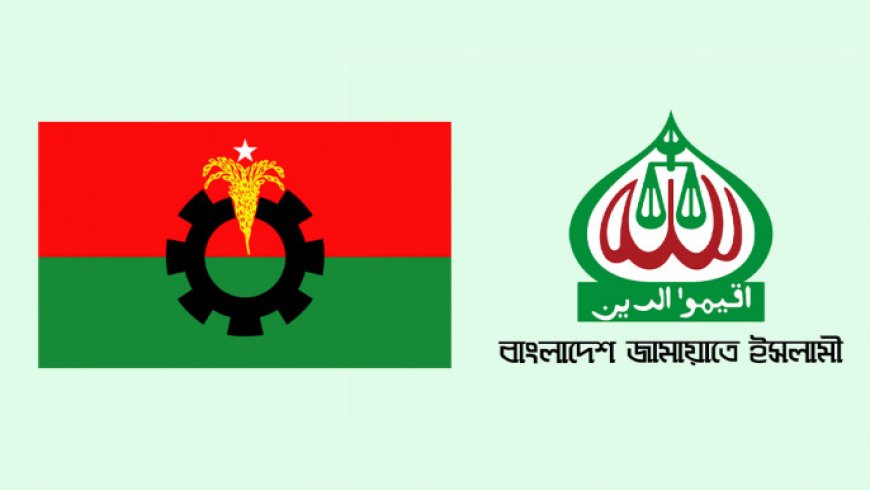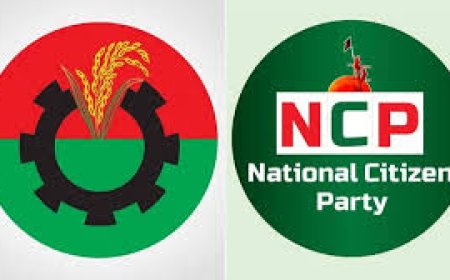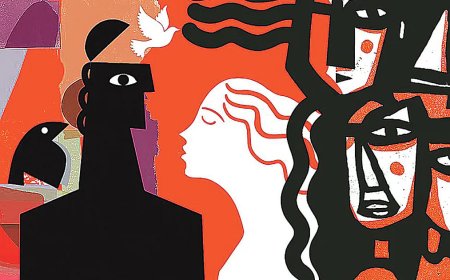BNP and Jamaat Take Separate Routes
Recent statements from leaders of both parties indicate that the BNP and Jamaat have taken separate paths and are unlikely to unite in the near future.

Jamaat and BNP: Divergent Paths and Rising Tensions
At a time when Jamaat-e-Islami leaders are openly criticizing 15 years of Awami League rule and cautioning against a resurgence of authoritarianism, a curious incident unfolded in Gazipur. Reports indicated that Jamaat leaders and activists marched to a police station in Gazipur to demand the release of an Awami League leader, Md. Shafiqul Sikder, arrested in the Bhawal Mirzapur area.
Despite their efforts, the police did not release Shafiqul, who was identified as the organizing secretary for ward 2 of the Mirzapur union Awami League. Jamaat leader Mustafizur Rahman claimed that Shafiqul had ceased involvement with Awami League politics after 2018 and had joined Jamaat. He alleged that rival political factions were pressuring Shafiqul to switch allegiance and orchestrated his arrest when he refused. Though he refrained from naming the party responsible, his comments suggested the BNP.
Local observers corroborated this narrative, emphasizing the shifting political dynamics. With Awami League's influence waning in certain areas, BNP and Jamaat have emerged as competitors, vying to strengthen their bases by drawing defectors from rival parties. This competition has created friction, particularly with the upcoming elections.
Grassroots Survival and Shifting Loyalties
The Gazipur incident highlights a broader trend of political realignment. Leaders and activists from various parties are scrambling for survival, likened to passengers of a sinking ship clinging to any available lifeline. During Awami League's tenure, Jamaat leaders in some regions adopted Awami League ideologies for survival. Now, grassroots Awami League members appear to be seeking refuge with BNP or Jamaat.
Since 5 August, similar incidents have been reported nationwide, as Awami League leaders and activists reach out to former friends, classmates, and associates in BNP and Jamaat, reversing prior roles when they sought to have them arrested or sidelined.
A Growing Rift Between BNP and Jamaat
The competition for votes has fueled tensions between BNP and Jamaat, with leaders from both sides trading sharp criticisms. BNP's Ruhul Kabir Rizvi recently accused Jamaat of attempting to undermine his party, referencing alleged opportunistic behaviors and questionable roles during Bangladesh's liberation war. In response, Jamaat assistant secretary general Rafiqul Islam Khan dismissed Rizvi’s statements as baseless and politically motivated, affirming Jamaat’s stance against Indian influence and authoritarianism.
This back-and-forth has deepened the divide between the two parties. While BNP leaders argue their partnership with Jamaat was a strategic alliance to restore democracy, they maintain that their political ideologies were never aligned. Jamaat leaders, on the other hand, have tried to position their party as a staunchly patriotic force, a narrative that has sparked backlash from other political figures and commentators.
Divergent Futures
Statements from leaders of both parties indicate that BNP and Jamaat are firmly on separate trajectories. Their temporary alliances in the past were strategic rather than ideological, and their current rivalry underscores their divergent goals. As Bangladesh approaches a critical election, the paths of BNP and Jamaat appear increasingly unlikely to converge.
What's Your Reaction?




















































































